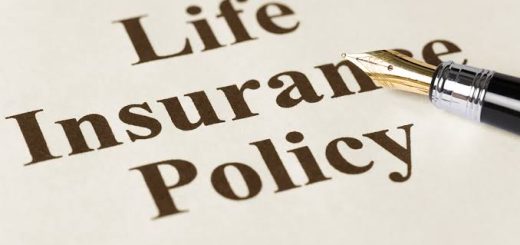How to Use Life Insurance as Collateral for Loans in Nigeria
This article explores how you can use your life insurance as collateral for collecting loans in Nigeria.
Are you facing a financial hurdle and considering a loan to overcome it?
Have you thought about using your life insurance policy as collateral?
In Nigeria, where access to credit can be challenging, using life insurance as collateral for loans is a growing trend.
But is it a smart financial move?
In this article, we’ll delve into the world of life insurance and loans, exploring the benefits and risks of using your policy as collateral.
From understanding the process to weighing the pros and cons, we’ll guide you through the complexities of this financial strategy.
Whether you’re a individual or business owner, this information will help you make an informed decision and avoid potential pitfalls.
So, let’s dive in and explore the possibilities and implications of using life insurance as collateral for taking loans in Nigeria.
HOW LIFE INSURANCE AS COLLATERAL WORKS
To start, using life insurance as collateral for loans is a unique financial strategy that requires understanding the intricacies of both life insurance and the loan processes.
In Nigeria, this option is available for both individuals and businesses that have a life insurance policy with a cash value component.
Here’s how it works:
- Assignment of Policy: The policyholder assigns their life insurance policy to the lender as collateral for the loan.
- Cash Value: The lender uses the cash value of the policy as security for the loan.
- Loan Amount: The loan amount is typically a percentage of the policy’s cash value.
- Interest and Repayment: The borrower repays the loan with interest, and the lender holds the policy as collateral until the loan is fully repaid.
- Policy Benefits: If the borrower defaults, the lender can claim the policy’s benefits to recover the loan amount.
HOW TO USE LIFE INSURANCE AS COLLATERAL FOR A LOAN IN NIGERIA
Here’s a step-by-step guide to help you navigate this process:
STEP 1: REVIEW YOUR POLICY
Start by reviewing your life insurance policy to ensure it has a cash value component that can be used as collateral.
Check the policy’s terms and conditions to understand:
- The assignment and collateral requirements
- The policy’s cash value and growth rate
- Any fees or penalties associated with assigning the policy as collateral
- The process for reassigning the policy once the loan is repaid
STEP 2: CHOOSE A LENDER
Select a lender that accepts life insurance policies as collateral.
Compare interest rates, fees, and repayment terms from different lenders to find the best option.
Consider:
- The lender’s reputation and experience with life insurance collateral loans
- The loan amount and repayment terms
- The interest rate and fees associated with the loan
- Any additional requirements or documentation needed
STEP 3: ASSIGN YOUR POLICY
Assign your life insurance policy to the lender as collateral.
This involves completing a collateral assignment form, which transfers the policy’s ownership to the lender until the loan is repaid.
Ensure you understand:
- The implications of assigning your policy as collateral
- The process for reassigning the policy once the loan is repaid
- Any potential tax implications
STEP 4: APPLY FOR THE LOAN
Apply for the loan, providing the required documentation, including:
- Your policy assignment form
- Loan application
- Proof of income and employment
- Identification documents
STEP 5: RECEIVE THE LOAN
You will then receive the loan amount which will be based on a percentage of your policy’s cash value.
Ensure you understand:
- The loan amount and repayment terms
- The interest rate and fees associated with the loan
- Any additional requirements or documentation needed
STEP 6: REPAY THE LOAN
Repay the loan according to the agreed-upon terms, including interest and fees.
Ensure you:
- Make timely payments to avoid default
- Understand the implications of defaulting on the loan
- Keep records of your payments and loan documents
STEP 7: REASSIGN YOUR POLICY
Once the loan is repaid, reassign your policy back to yourself, transferring ownership from the lender.
Ensure you:
- Complete the necessary paperwork
- Understand any potential tax implications
- Keep records of the reassignment
BENEFITS OF USING LIFE INSURANCE AS COLLATERAL
There are several benefits for using life insurance as collateral for loans in Nigeria both for individuals and businesses alike.
Some of the advantages include:
- Access to Quick Cash: If you use your life insurance policy as collateral, you can access quick cash to meet your financial needs, whether it’s for a business opportunity, emergency, or personal expense.
- Lower Interest Rates: Loans secured with life insurance collateral often have lower interest rates compared to unsecured loans, saving you money on interest payments.
- Flexibility: This option provides flexibility in loan repayment, as you can choose to repay the loan amount in installments or all at once.
- No Credit Check: In some cases, lenders may not require a credit check, making it easier to access loans even with a poor credit history.
- Retain Policy Ownership: Despite assigning the policy as collateral, you retain ownership and can still receive policy benefits, such as dividends and bonuses.
- Tax Benefits: The interest paid on the loan may be tax-deductible, providing additional tax benefits.
RISKS AND CONSIDERATIONS
While there are several benefits of using life insurance as collateral for loans in Nigeria, there are also potential risks and implications that you have to consider.
Before making a decision, it’s essential to understand the following:
- Risk of Policy Lapse: If you’re unable to repay the loan, the lender can claim the policy’s benefits, leaving your loved ones without a financial safety net. This could mean that your family may not receive the intended death benefit, potentially causing financial hardship.
- Reduced Policy Value: Assigning your policy as collateral reduces its value, potentially impacting your financial plans and goals. This could limit your ability to make changes to your policy or access its cash value for other needs.
- Interest Accumulation: Loan interest can accumulate quickly, increasing the amount you need to repay and potentially leading to financial strain. This could make it challenging to manage your finances and repay the loan.
- Credit Score Impact: Defaulting on the loan can negatively impact your credit score, making it harder to access credit in the future. A poor credit score can limit your financial options and increase interest rates on future loans.
- Complexity: Most times, using life insurance as collateral can be complex, with strict terms and conditions that require careful consideration. It’s essential to understand the fine print and seek professional advice to avoid potential pitfalls.
- Opportunity Cost: Tying up your life insurance policy as collateral may limit your access to other financial opportunities and resources. This could mean missing out on other investment options or financial strategies that could benefit your financial situation.
- Loss of Control: By assigning your policy as collateral, you may lose control over your policy’s management and decision-making. This could lead to unforeseen consequences and limit your ability to make changes to your policy.
- Tax Implications: There may be tax implications to consider when using life insurance as collateral. It’s crucial to understand how this could impact your tax situation and seek professional advice.
NIGERIAN INSURANCE COMPANIES THAT OFFER LIFE INSURANCE AS COLLATERAL
If you’re considering using your life insurance policy as collateral for a loan in Nigeria, it’s important that you know which insurance companies that offer this option.
Several top insurance companies in Nigeria provide life insurance policies that can be used as collateral, including:
- AIICO Insurance Plc: AIICO offers a range of life insurance products that can be used as collateral, including their Whole Life and Endowment policies. Their whole life policy provides a death benefit and a cash value component, which can be borrowed against or used as collateral.
- Leadway Assurance Company Limited: Leadway offers a variety of life insurance products, including term life and whole life policies, that can be used as collateral. Their whole life policy has a cash value component that can be used as collateral, and their term life policy can be converted to a whole life policy with a cash value component.
- Zenith Life Insurance Company Limited: Zenith Life offers whole life and endowment policies that can be assigned as collateral for loans. Their whole life policy has a cash value component that grows over time, and their endowment policy provides a lump sum payment after a specified period.
- Custodian Life Assurance Limited: Custodian Life offers a range of life insurance products, including whole life and term life policies, that can be used as collateral. Their whole life policy has a cash value component that can be borrowed against or used as collateral.
- AXA Mansard Insurance Plc: AXA Mansard offers whole life and endowment policies that can be assigned as collateral for loans. Their whole life policy has a cash value component that grows over time, and their endowment policy provides a lump sum payment after a specified period.
When considering using your life insurance policy as collateral, you have to research and compare the offerings from different insurance providers to find the best option for your needs.
Be sure to carefully review the terms and conditions of the policy and loan agreement to ensure you understand the implications of using your policy as collateral.
Some key factors to consider include:
- Interest rates and fees
- Loan repayment terms
- Policy cash value and growth rate
- Assignment and collateral requirements
- Loan amount and repayment terms



